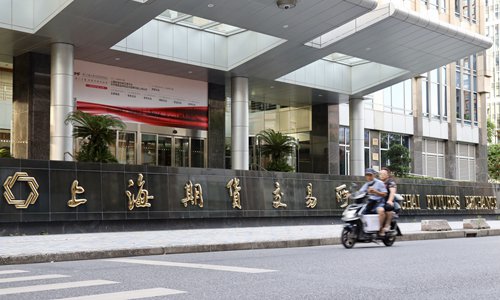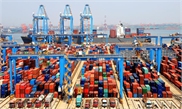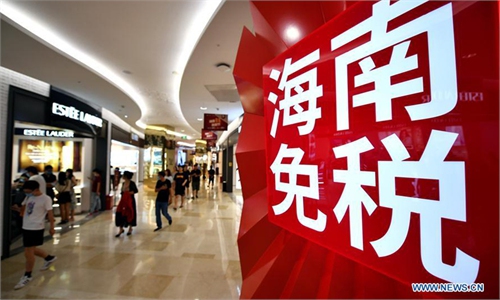SOURCE / INDUSTRIES
International copper futures to start trading in China
Contract helps hedge risks, increase pricing power

Residents pass by the Shanghai Futures Exchange, located in the Pudong District of East China's Shanghai Municipality, on August 1. Photo: IC
China will expand the opening-up of its commodities markets by allowing overseas investors to trade copper futures on the Shanghai International Energy Exchange of the Shanghai Futures Exchange, starting from Thursday.
Analysts said the contracts will help enterprises manage risks and give the domestic copper industry more pricing power and competitiveness on the global market.
Unlike the existing copper futures contract on the Shanghai Futures Exchange, which is intended for use by domestic traders, the international copper futures will exclude tax and customs duty, and the metal will be delivered to bonded warehouses, according to the exchange.
Meanwhile, the product being traded is copper cathode - the same as the London Metal Exchange (LME) copper futures - helping it compete with the LME.
"The launch of the copper futures will give domestic mine owners and smelters a pricing advantage," Jiang Haihui, a senior analyst at Shanghai-based SHZQ Futures, told the Global Times on Wednesday. Because of strong pricing power of copper overseas, large domestic users have had to go overseas to negotiate prices, he said.
Volatility in global commodity prices this year has pushed up enterprises' demand for risk management and propelled trading volume in basic metal futures in Shanghai.
In the first three quarters, trading of existing copper futures soared 44.6 percent to reach 9.74 trillion yuan ($1.49 trillion), data from the exchange showed.
China is the world's largest producer, consumer and importer of refined copper.
According to data from the China Nonferrous Metals Industry Association (Chinania) and Chinese customs, China's output of refined copper stood at 9.78 million tons in 2019, representing 41.24 percent of the global total, while consumption stood at 12.08 million tons, accounting for 50.72 percent. Its net imports also led the world at 3.23 million tons.
Paul White, secretary-general of the International Copper Study Group, said in a report on the Chinania website that, given China's important role in the global landscape of copper production, consumption and trade, he is confident that the international copper futures will be conducive to global investors jointly participating in the formation of a "Shanghai Price," which is likely to enhance China's role in the global copper industry.
In addition, overseas investors will have another reason to use the yuan.
"Although there would not be too many international investors during current stage due to limits on the yuan's free use, I'm confident that trading of the new futures will help boost the internationalization of the yuan as the market gradually expands," Lin Boqiang, director of the China Center for Energy Economics Research at Xiamen University, told the Global Times on Wednesday.
The international copper futures contract is not China's first such product. China lunched the yuan-denominated crude oil futures contract in Shanghai and iron ore trading in Dalian Commodity Exchange in 2018, both of which formally introduced international investors.
Thanks to robust cross-border use, yuan-denominated international payments rose to 1.79 percent of the total in May this year, holding at No.6 in the world, according to a report by the Society for Worldwide Interbank Financial Telecommunication in June.


